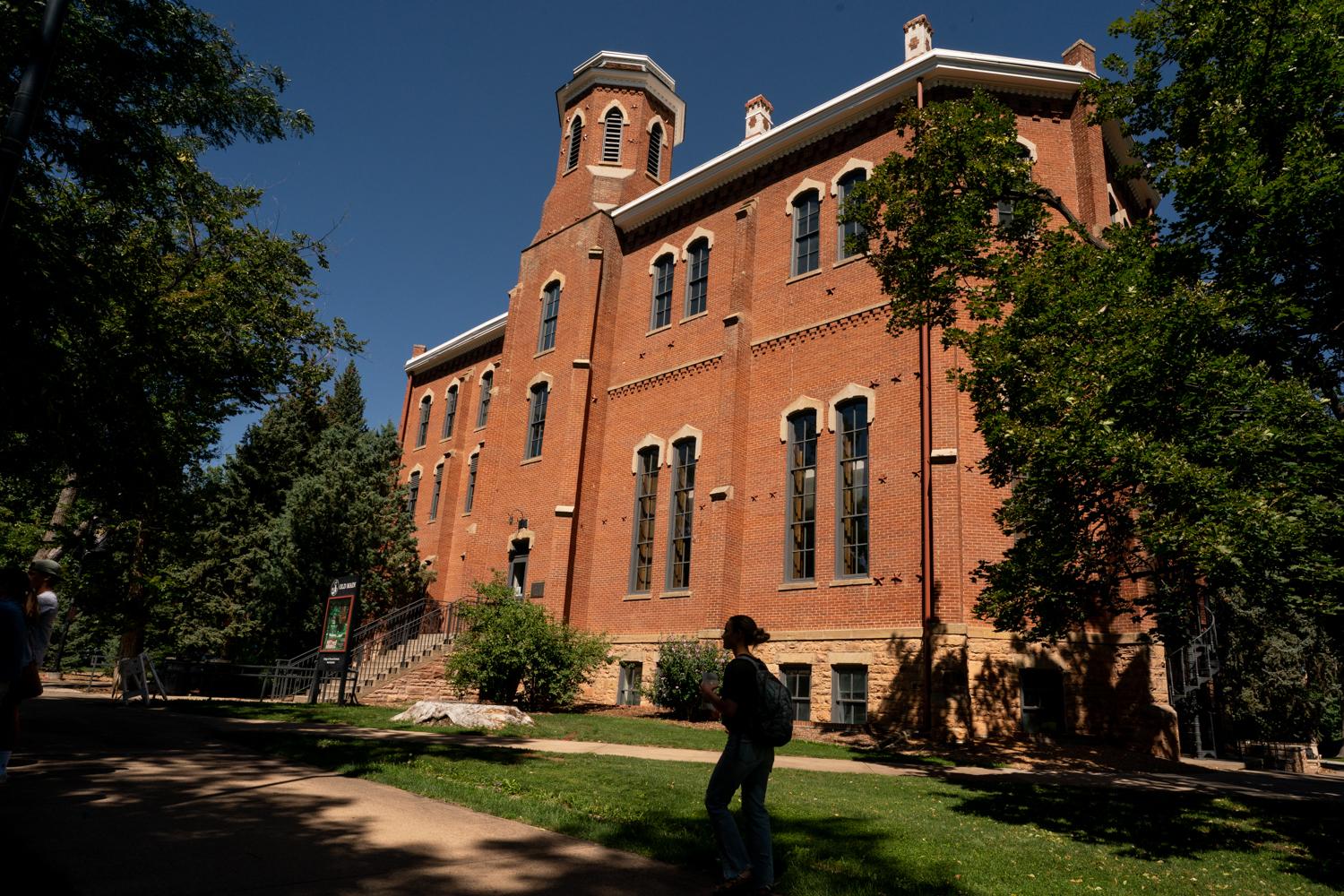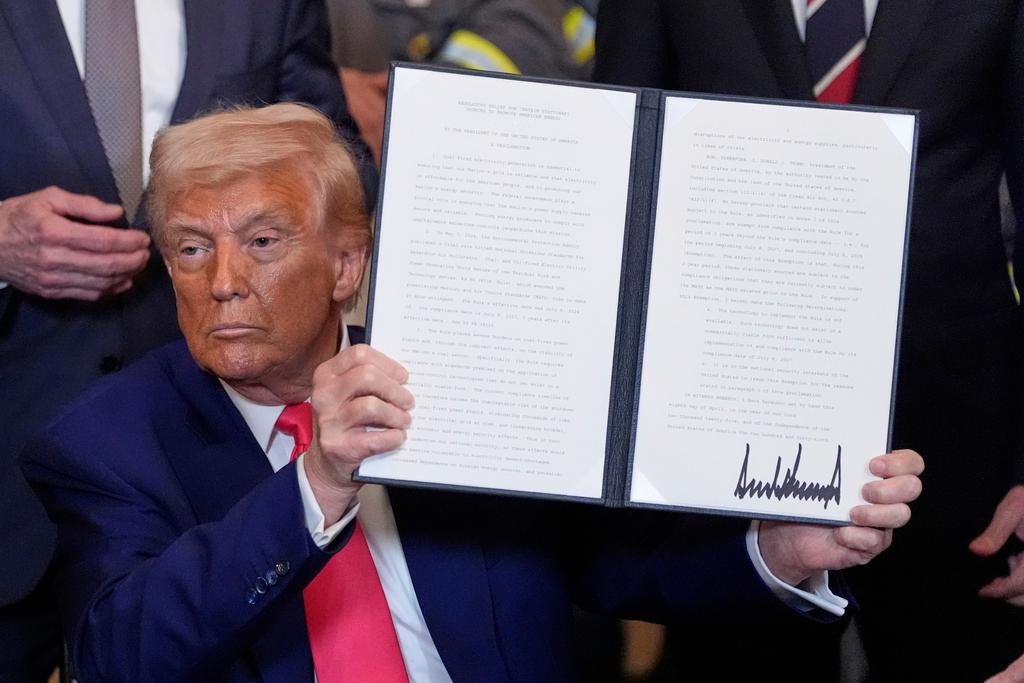
Love it or hate it, there is one thing most everyone can agree on, 100 days into Donald Trump’s second term: the president has been pushing the boundaries of executive power like no other president in recent history.
Trump has talked about taking over Greenland and the Panama Canal and sending the military into Mexico. He’s shuttered agencies, choked off congressionally-approved spending, virtually erased non-military foreign aid and could be headed to a showdown with the federal judiciary.
Trump has issued executive orders and memos ranging from ending the “forced” use of paper straws and renaming the Gulf of Mexico to opening up more fossil fuel extraction on public lands and cutting the federal workforce.
Taken altogether, the United States appears to be entering a new age of the imperial presidency.
In comparison to the more than 130 executive orders Trump has issued since returning to the White House, he’s only signed five bills into law. The first was the Laken Riley Act, a campaign priority for the president. The others were a full-year continuing resolution to fund the government and the repeal of three Biden-era rules. At this point in Joe Biden’s presidency, he had signed seven bills into law, including the American Rescue Plan.
“It's deeply dangerous and I think should concern every American, certainly every Coloradan,” Democratic Rep. Joe Neguse told CPR News. “[Trump] has issued more executive orders in the first a hundred days of his presidency than any president in the history of our country … And the vast majority of these executive orders are not consistent with the Constitution. Many of these orders, he well understands, violate the separation of powers.”
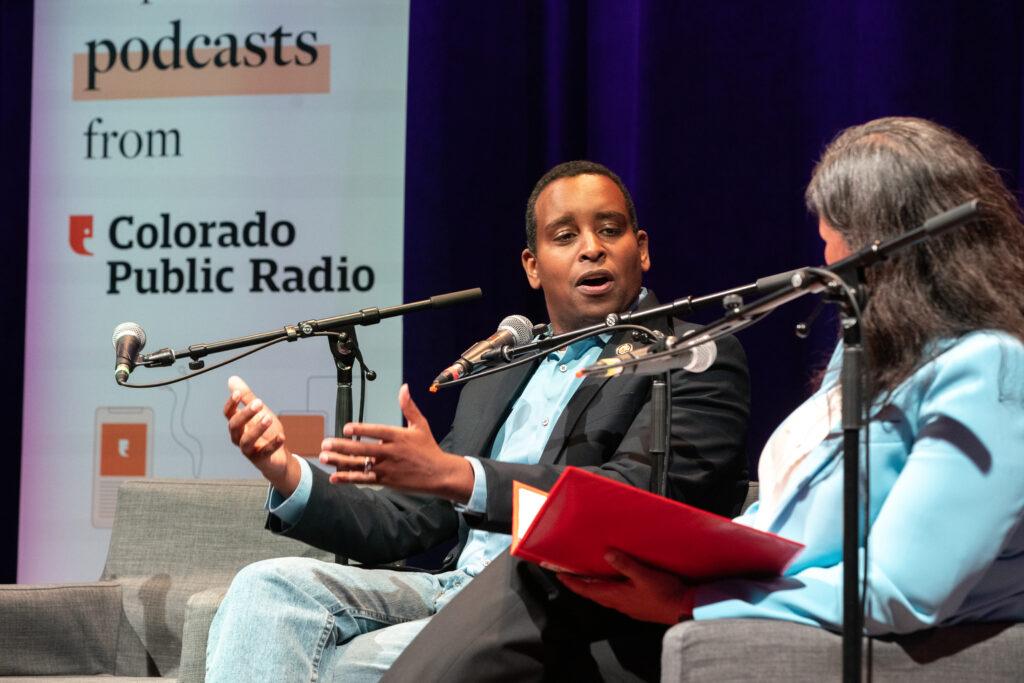
Much of Trump’s rush to assert his agenda has come at the expense of Congress, the branch of government that’s supposed to write laws and have the power of the purse. But for some of the members who support him, that approach says more about the failure of their own branch of government than overreach by his.
“President Trump is keeping his promises. He's doing exactly what he campaigned on for four years,” Rep. Lauren Boebert told CPR News, highlighting actions he’s taken to stem the tide of illegal crossings along the southern border. “We have a president who has a vision and he is executing that vision each and every day.”
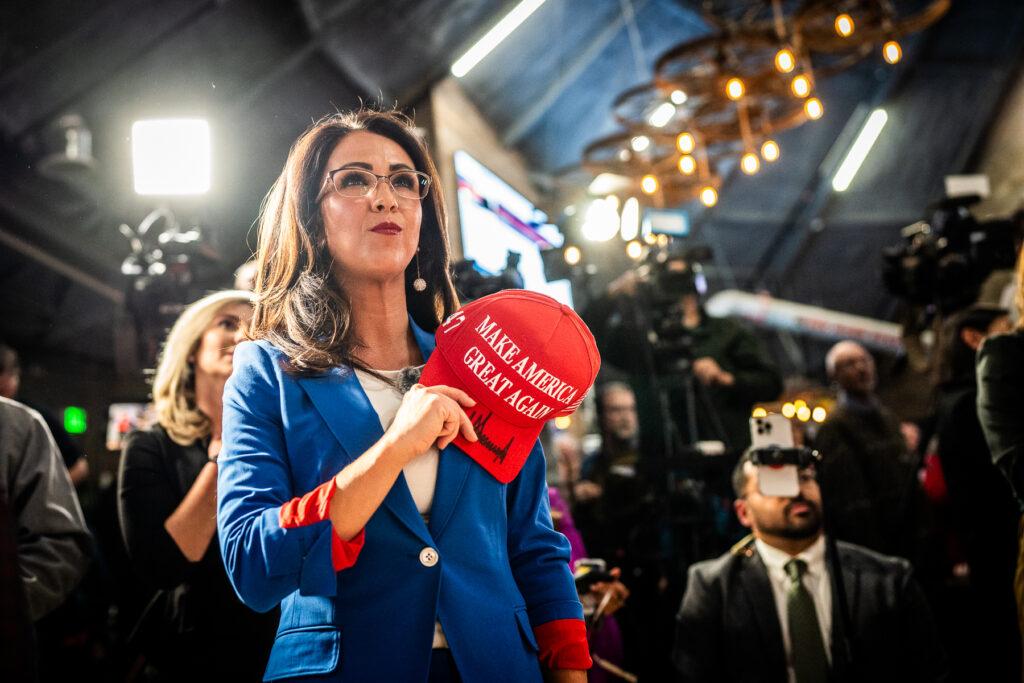
When it comes to the administration’s ‘wood-chipper’ approach to cutting spending and firing federal workers, Boebert also sees a legislative branch that has failed in its responsibilities.
“Obviously Congress has not done a very good job at having that oversight and reducing spending and that's why we're $36 trillion in debt,” she said earlier this year.
Flooding the zone
From inauguration day, Trump has overwhelmed his opponents by issuing so many orders that it’s hard to process.
“I had the sense that he was going as fast and as furious as he could,” Democratic Sen. John Hickenlooper told CPR News. “By going fast, he’s able to protect himself and protect his efforts.”

This isn’t surprising to Hickenlooper. The approach was laid out in Project 2025, a conservative playbook for a second Trump presidency.
“The great challenge confronting a conservative President is the existential need for aggressive use of the vast powers of the executive branch to return power—including power currently held by the executive branch—to the American people,” wrote Russ Vought in the Executive Office of the President of the United States section of Project 2025. Vought is now head of the Office of Management and Budget.
Democratic Rep. Jason Crow said Trump isn’t abiding by the checks and balances the Founding Fathers built into the government.
“He frankly does what he wants to do regardless of Congress, which is why it's really important that Congress stand up and be the co-equal independent branch that our founders created in the Constitution,” Crow told CPR News. “Unfortunately, my Republican colleagues at this point have failed to stand up to Trump and be independent. So that's where we're at right now.”
Rep. Boebert said Congress does need to play its role — to move Trump’s policies from executive orders into law. “I'm absolutely supportive of his executive actions and now the pressure is on us to codify that.”
After all, what one president does by executive order, a future president can undo.
Freshman GOP Rep. Gabe Evans, who sits in the state’s only swing seat, said the first 100 days have seen an improvement in public safety, a major issue for him. “We've seen some very dynamic enforcement … around the border and around criminals and drug dealers and transnational criminal organizations committing crimes in the community.”
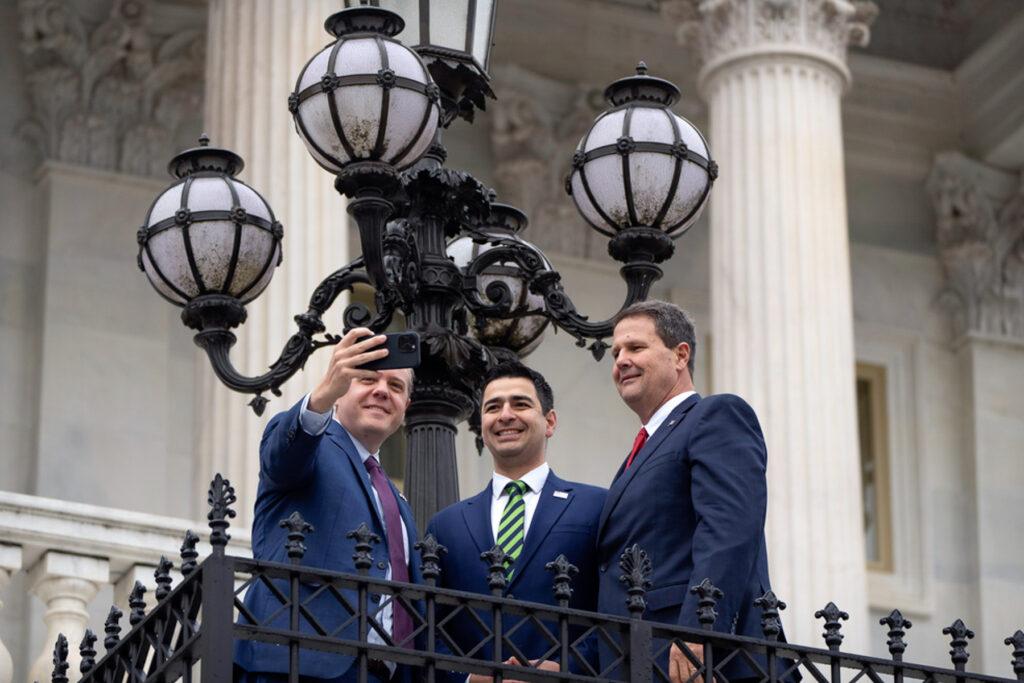
While Evans said it’s important to follow the processes and procedures in the Constitution, regardless of who’s in office, he’s comfortable with Trump’s use of executive orders.
“Wasn’t it a Democrat president that said, ‘I have a pen and a phone,’” Evans noted, pointing to something former President Barack Obama said in 2014. “I think that precedent was set with a Democrat president who came in and was pretty aggressive with using a pen and a phone to be able to accomplish things.”
While Obama promised to “act on my own” if Congress wouldn’t, he ended up averaging about 35 EOs per year, which the Pew Research Center found was fewer than any other president since Grover Cleveland.
“[Obama’s] willing to organize, he's willing to use the veto pen, he has some powers as president, but he was still sort of acknowledging the legitimacy of Congress as an institution,” explained Seth Masket, professor of Political Science at the University of Denver. “This was a back-and-forth. There was an interplay.”
And Masket noted another big difference: Obama made that statement when his legislative agenda was being stalled by a divided Congress. Trump arrived back in office with his party controlling both the Senate and the House. Given that reality, it’s remarkable, Masket said, how little Trump has sought to do through Congress.
“He has stated pretty clearly that he views a lot of the powers of the presidency as tied to executive orders, which he can design as he likes. They don’t require any compromise, and they can be enacted very quickly.”
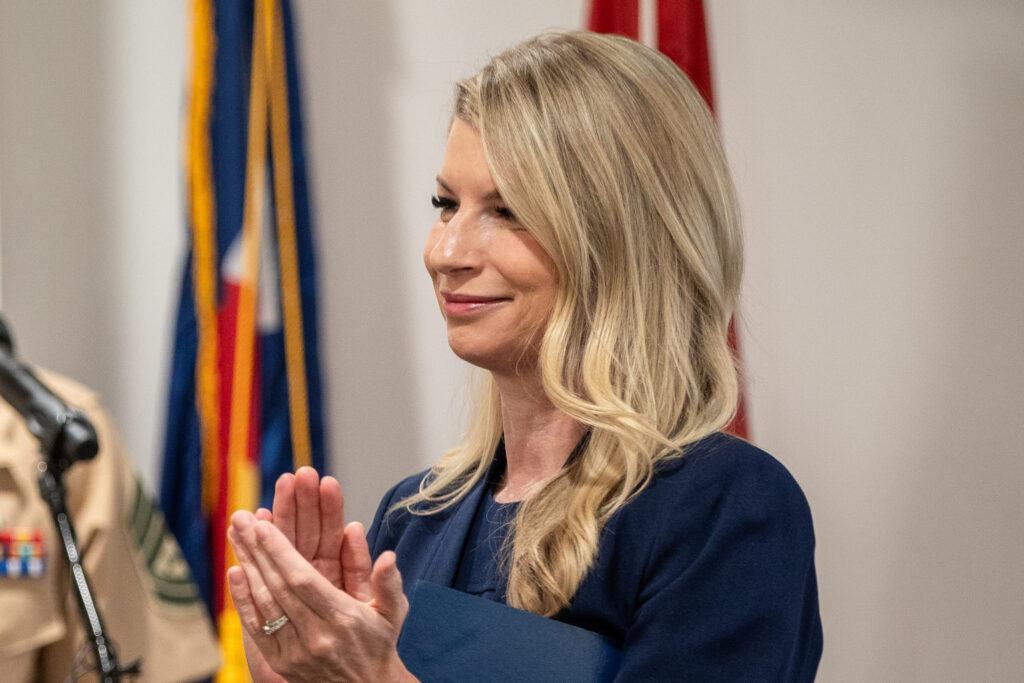
In the eyes of Democratic Rep. Brittany Pettersen, that approach makes it clear Trump “doesn’t look at Congress as an equal branch of government and he’s doing everything he can to work around [Congress].”
The dean of the Colorado delegation, Democratic Rep. Diana DeGette, defended past Democratic presidents’ use of EOs, saying they were done “more sparingly.”
And DeGette noted, “Republicans had no compunction about filing lawsuits to block Democratic presidents from issuing executive orders.” It’s an approach Democrats are taking now too. The state of Colorado has signed on to around a dozen lawsuits seeking to block Trump’s actions, and DeGette belongs to a task force of congressional Democrats (headed by Rep. Neguse) working to assist those legal efforts.
“I think one of the hallmarks of the Trump administration is the complete lack of any restraint when it comes to the illegal exercise of executive power. I think that President Trump is saying, ‘let me just see how far I can take this and let's see what the courts will do,’” DeGette told CPR News.
Democratic Sen. Michael Bennet is also worried that the traditional guardrails on the presidency may not restrain this administration; he fears Trump might not just ignore Congress, but the courts, too. “We've never had a president do that. So I think it's important for all of us to keep an eye on what's going on.”

‘Congress needs to do a better job’
Freshman GOP Rep. Jeff Crank dismisses many of Democrats’ concerns about presidential overreach. For example, he argued, the president does have the constitutional authority to decide how many federal employees are really needed to execute congressionally-approved programs.
“I don't think that the President has to come to Congress every time he wants to downsize the federal government. He is the executive branch, and he has the right, in my view, to do that,” Crank told CPR News.
But, Crank added, any president needs to follow the laws that Congress has passed. “The president’s going to push, Congress needs to push back.”
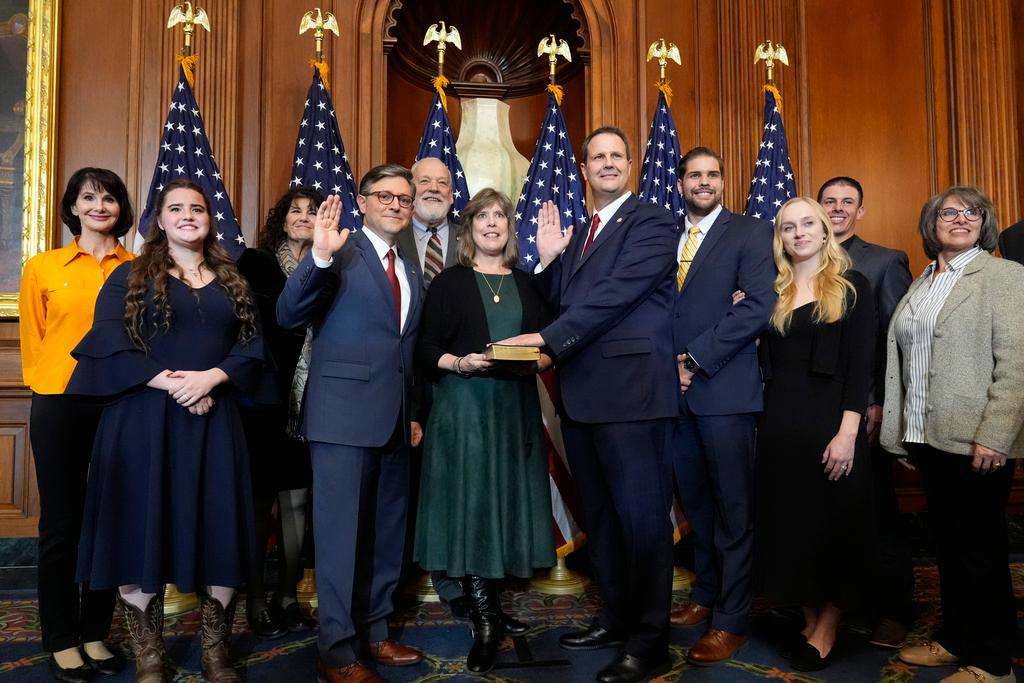
An example he points to is war powers, and how the authority to involve the nation in military disputes has shifted over time.
“I think that the executive branch has been very adept at expanding its power. And it doesn't matter whether the president was Richard Nixon or Jimmy Carter or Barack Obama, Joe Biden or Donald Trump … Congress has ceded a lot of its authority,” Crank said. “I do think that the Congress itself has to pull back some of its Article One authority. There's no doubt about that.”
Article One, the section of the Constitution setting forth the powers of the legislative branch, has been on the mind of fellow GOP Rep. Jeff Hurd, too.
Hurd, who represents Western and Southern Colorado, said Trump has been working on the issues he campaigned on, including a more efficient federal government, through channels available to him.
Still, Hurd is one of a handful of congressional Republicans who have pushed back on Trump’s tariff policy, pointing out that that’s Congress’s job.
“When the President issues orders that are within the authority of the presidency that I agree with, you better believe I'm behind him a thousand percent,” Hurd told CPR News. “But when any executive order oversteps those boundaries, then I'm going to raise some concerns.”
He said he’d do the same for a Democratic or a Republican president.
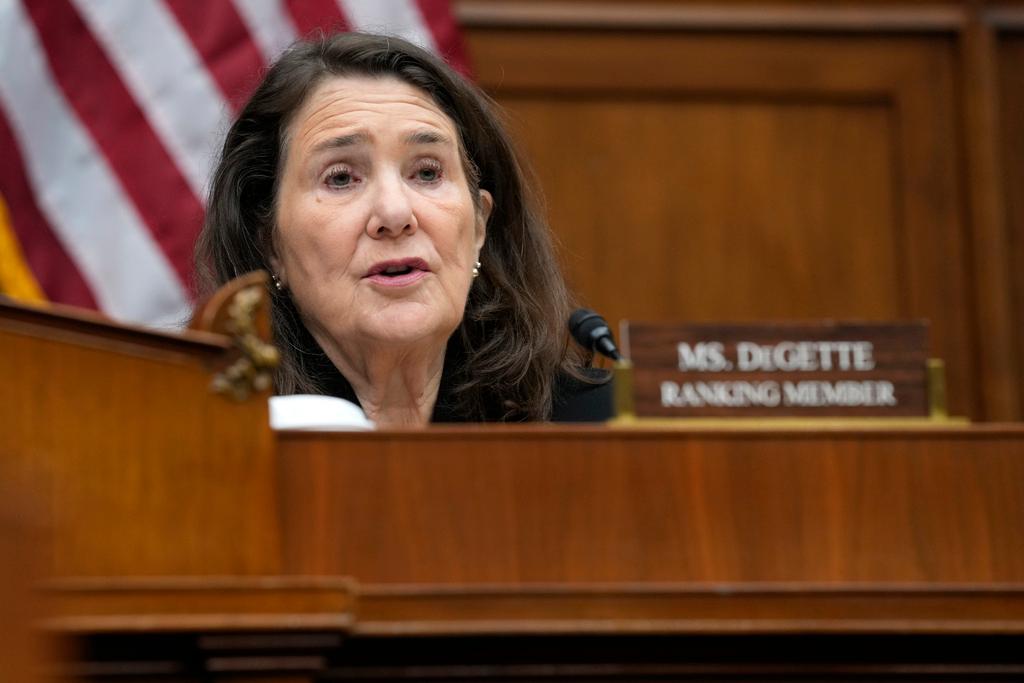
“Congress needs to do a better job of making sure that it protects the authority that it has in Article One of the Constitution. It has not done that,” Hurd said.
But lawmakers, even within the same party, don’t all agree on where to draw the line around executive authority. For example, Evans views the tariffs as falling within Trump’s authority because the presidency has power over foreign policy.
Masket said the Founding Fathers built overlaps, as well as checks and balances, into the system. For example, only the president can negotiate a treaty, but the Senate is still required to approve it.
“This is part of the design of the Constitution, that there's sort of shared powers across multiple branches. And any sort of progress that an administration is going to make has to be done as a give-and-take. It's a negotiation between different branches, and that has not always worked smoothly. It's designed really to be inefficient,” said Masket.
That inefficiency, though, has led to deep public dissatisfaction with the legislative branch. Over the past decade, Congress’ job approval has rarely topped 20 percent.
“I would say in fairness that we've seen over the years, presidents of both parties taking more executive authority as a result of the dysfunction in Congress,” said Sen. Bennet. “But what you see with Donald Trump is, it's been taken to an entirely different level.”
And some Democrats believe that should also worry Republicans; no matter what they think of Trump’s policies, the unprecedented powers he’s adopting could be wielded by future Democratic presidents as well.
“[Republicans] know that they are setting new standards that will not inure to the benefit of the American public. And I think it's just deeply disheartening to see them do that. I think they're going to regret it as to what Democrats might do in the future,” Neguse said.
Invest in a more sustainable future. Support climate solutions reporting.







